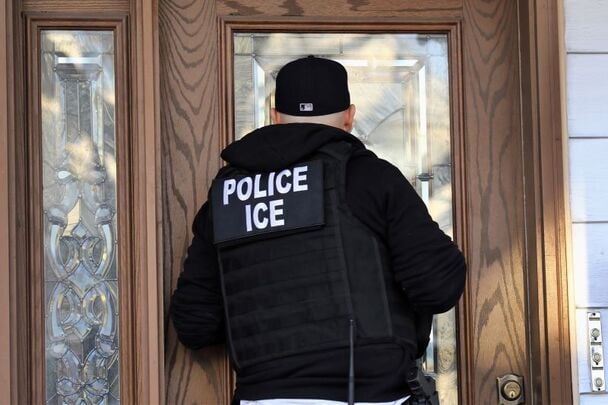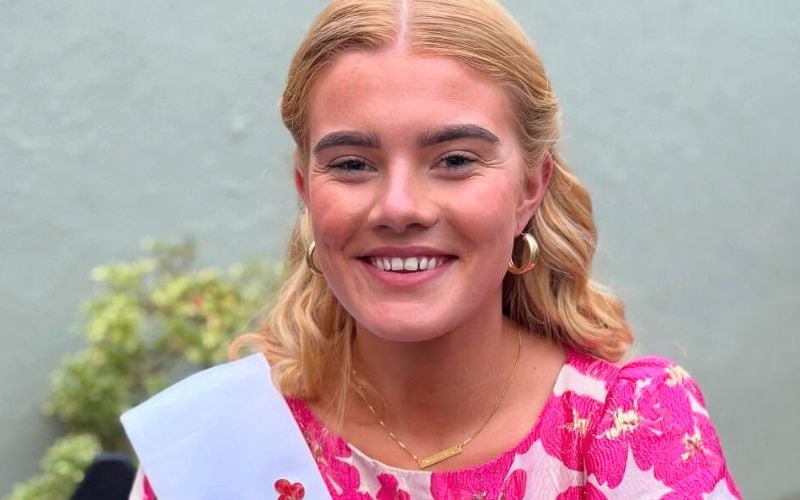Matthew Morrison, a native of Derry who had been living in the US for four decades, self-deported back to Ireland in July out of fear that he might be picked up by US Immigration and Customs Enforcement (ICE).
“I would bite the dust in an ICE holding cell,” Morrison, 69, told The Marshall Project - St. Louis before he left the US to return to Ireland in July.
“There is nothing to stop them from deporting me to Ecuador, South Sudan, or whatever.
"It’s really gotten insane here. It’s crazy what they are doing now, the Trump administration. You know what I mean?”
Morrison was raised in the working-class, Catholic area of Brandywell in Derry. In 1970, he was 16 years old when he marched in the civil rights demonstration, which is now known as Bloody Sunday, after British soldiers opened fire on unarmed civilians, killing 13 people.
Writing for the US-based Irish republican newspaper The Irish People in September 1993, Morrison described Bloody Sunday as a "watershed moment of great significance" which, in part, prompted him to join the Irish Republican Army (IRA).
In 1975, when he was a student at the New University of Ulster, he and two other students were arrested, charged, and convicted in a British non-jury court of the attempted murder of an RUC man. He was sentenced to 20 years in prison in Long Kesh, of which he ultimately served ten.
While in prison, Morrison was appointed as one of the highest-ranking members of the IRA.
Also in prison, his correspondence with American woman Francie Broderick developed into a relationship. Broderick visited Morrison while he was still in prison, and the two decided that they would get married.
Morrison was released in 1985, and on December 23 that year, he traveled on a tourist visa with Broderick to St. Louis, Missouri. A week later, the two got married.
Ever since overstaying his visa, the threat of being forced to return to Ireland hung heavy over Morrison and his family.
"I do not deny my past, but I would like to escape it," Morrison wrote in 1993.
He added: "I have no connection with the armed struggle in Ireland and there is no likelihood of any such connection being rekindled."
He wrote at the time that should he and his family be forced back to Ireland, they would face "significant danger."
Morrison and Broderick divorced after having two children together; Morrison later remarried to another American woman, Sandra Riley Swift.
He remained based in Missouri, where he worked as a nurse for about 20 years, until he self-deported in July.
"Deportees"
In the summer of 2000, Morrison was among the six Irish nationals - nicknamed the 'deportees' - who had their deportation proceedings terminated by US Attorney General Janet Reno, who also ordered officials to forego proceedings against another three Irish nationals.
Reno said US Secretary of State Madeleine Albright advised her that terminating the deportations of the Irish nationals "would serve the interests of United States foreign policy by contributing to the course of reconciliation reflected in the Good Friday Accord."
The move was welcomed by then-US President Bill Clinton, who said: "While in no way approving or condoning their past criminal acts, I believe that removing the threat of deportation for these individuals will contribute to the peace process in Northern Ireland."
While the "deportees" were relieved, they were not permitted to apply for green cards or US citizenship, and they still had to live with restrictions and regularly check in with the government.
In June, Morrison attended a scheduled check-in with US Citizenship and Immigration Services in St. Louis. Recent stories of immigrants being arrested at such check-ins put him and his family on edge.
“We were terrified that they were just going to take him right there,” Morrison's son Matt, 37, told The Marshall Project.
Matt added: “He has to live under that fear of somebody knocking on the door and dragging him out of the house, just like they did in Derry when he was young.
“I hate it. I am just worried about him. Until recently, I hadn’t heard him cry about it.”
At the appointment, however, Morrison was photographed and was free to go.
Meanwhile, another one of the "deportees," Armagh man Noel Gaynor, died in New York in May. According to The Marshall Project, Gaynor's Medicare and Social Security benefits had been cut off after months of waiting for his annual work authorization approval.
In June, another "deportee," Gabriel Megahey, said he received a letter from the US Department of Homeland Security that began: “It’s time for you to leave the United States.”
Read more
One-way flight
Morrison, whose work authorization is set to expire in October, told The Marshall Project he is expecting a letter similar to the one received by Megahey - but didn't want to stick around and find out.
On July 21, he boarded a one-way flight from Cleveland to Dublin with his wife, leaving behind his grown children, his grandchildren, and the life he had built in the US.
“I’ve come full circle,” Morrison told The Marshall Project before leaving the US.
“I came here as an immigrant, and I am leaving as an immigrant, despite everything in between.
"The whole thing is a crazy, stressful situation.”




Comments